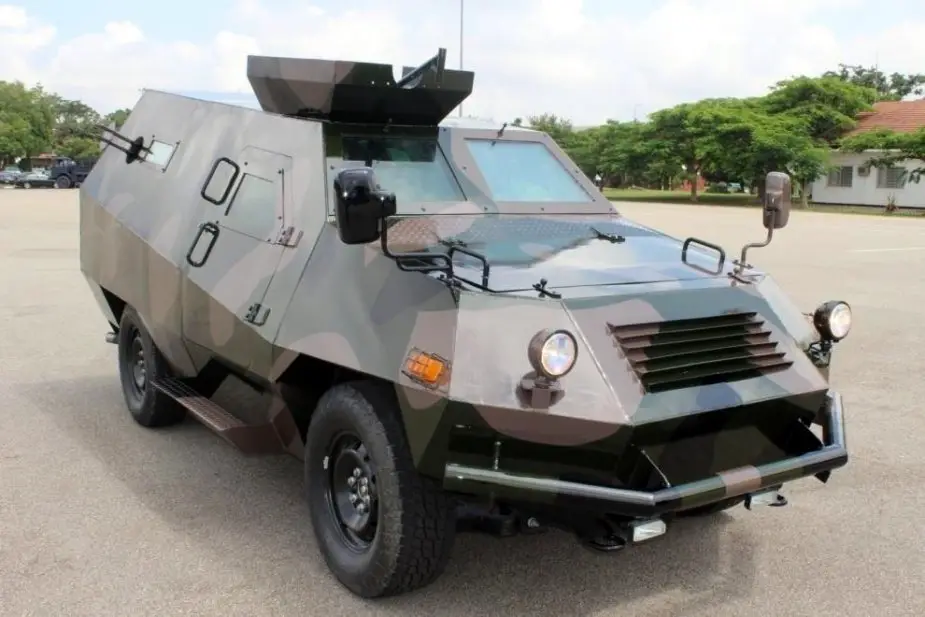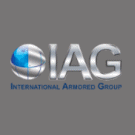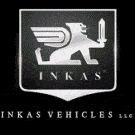According to Murtala Abdullahi in HumanAngleMedia, Nigerian President Muhammadu Buhari recently signed the national budget for the fiscal year 2022, which allocates over N1 trillion for defense operations, procurement and upgrade of capabilities, and infrastructure. The defence sector budget appropriation alongside funding for other security actors in the country was approved as part of the N17.126 trillion “Budget of Economic Growth and Sustainability” signed into law on Dec. 31, 2021 by the President.
Follow Army Recognition on Google News at this link

Locally-made Light Patrol Vehicle in the streets of Kaduna during Nigeria’s governorship and state assembly elections, on March 9, 2019. (Picture source: Twiter account Marko Babic)
During the presentation of the proposed budget earlier in October 2021, President Buhari had stated that security would continue to be top priority. The budget 2022, Murtala Abdullahi notices, represents an increase of N735.85 billion as against the initial proposal for a total expenditure of N16.391 trillion. The President also stated that he would revert to the Parliament “with a request for amendment “and/or” virement” as soon as they resume.
The defence budget comprised expenditures of the various institutions including the Ministry of Defence, the Defence Headquarters, Army, Air Force, and Navy, in addition to other organisations such as Defence Intelligence, College, Missions and Industries. Auxiliary budgets are often used by the government to purchase military equipment and to improve or fill capability gaps.
The Ministry of Defence section included funding for rehabilitation of barracks, purchase of defence equipment and motor vehicles, and the ongoing assessment of APCs, equipment and facilities in the Nigerian Army, while the Defence Headquarters devoted funding for the procurement of ‘“military equipment,” utility vehicles, kits, arms and ammunition.

Nigeria already produces several local armored vehicles, such as the Igirigi manufactured by the Defence Industries Corporation of Nigeria (DICON) (Picture source: naptu2)
The Army Headquarters had generic lines mentioning construction projects, procurement of defense and security equipment. The Navy assigned funds for projects such as the completion of helicopter hangars, construction of jetties, and establishment of Special Operations Command for Special Operations Forces, Explosive Ordnance Disposal (EOD), and diving unit. Other projects included the procurement of SDB, Landing Ship Tank, utility vehicles, troop carriers, fast patrol boats, and rigid-hulled inflatable boats (RHIBs). The Air Force is making a balance payment for the periodic depot maintenance of three L-39ZA aircraft. Over the years, the service has invested in maintenance and overhaul of the aircraft which are used for pilot training as well as reconnaissance and ground attack missions.
As underlined by Murtala Abdullahi, funding is also assigned for aircraft arms and ammunition, and balance payment for periodic depot maintenance of C-130H (NAF 918) transport aircraft, in addition to balance payment for procurement of two AW109 Trekker helicopters to replace the order for one AW139 helicopter and three JF-7 thunder aircraft.
It’s unclear if the JF-17 deal is for a new batch or part of an existing deal that has appeared in recent budgets. In May, the Air Force inducted three JF-17 Thunder multiple fighter jets, jointly manufactured by Chengdu Aircraft Industry Group of China and the Pakistan Aeronautical Complex.
Part payment was designated for reactivation of two AS332 Super Puma helicopters, maintenance and upgrade of three MiI helicopters and purchase of two KingAir 360, spares and support equipment which will serve as likely attrition replacement for the two Beechcraft KingAir B350i lost in February and May 2021, Murtala Abdullahi concludes.














